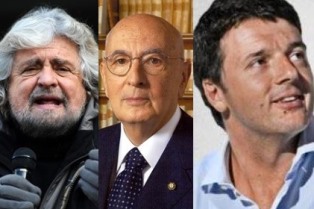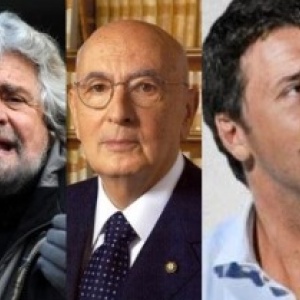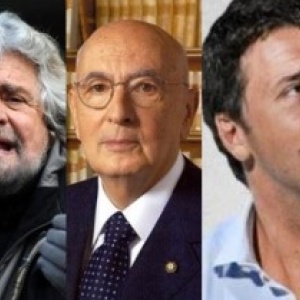
WTI Magazine #11 2014 Jan, 3
Author : Francesca Papasergi Translation by:
Politically speaking, Italy went through a lot in 2013.
After the February general elections (elezioni politiche) the Five Stars Movement, born only five years ago, rised as the most voted Italian party. It didn't get the majority because of the election rules, a matter that supposedly is going to be weighed in the next months. The 5SM represents a unique experience for the world's political scenario. After fifty years of Christian Democracy's hegemony, twenty years of Berlusconi and many different names, leaders and policies for the old Communist Party, Beppe Grillo's movement was supposed to change everything. Or so he said.
Last April, after a long and harsh parliamentary debate, Giorgio Napolitano was confirmed in his office as President of Italy (Presidente della Repubblica). This unexpected but apparently necessary, prolonged permanence at the Quirinale is a first in Italian Republic's History. Not even President Sandro Pertini - usually considered the most respected and beloved President Italy has ever had - was re-elected after his seven-years office.
In December, Matteo Renzi became the Secretary of the Italian Democratic Party. The 39-year-old mayor of Florence won against Gianni Cuperlo and Giuseppe Civati and, presumptively, will be running for prime minister in 2015's elections.
For the first time, the greatest Left party is led neither by an ex communist nor by an ex socialist. Renzi has his roots in the old Christian Democracy, he's notoriously catholic and wants to change his party and, then, his country. Or so he says.





